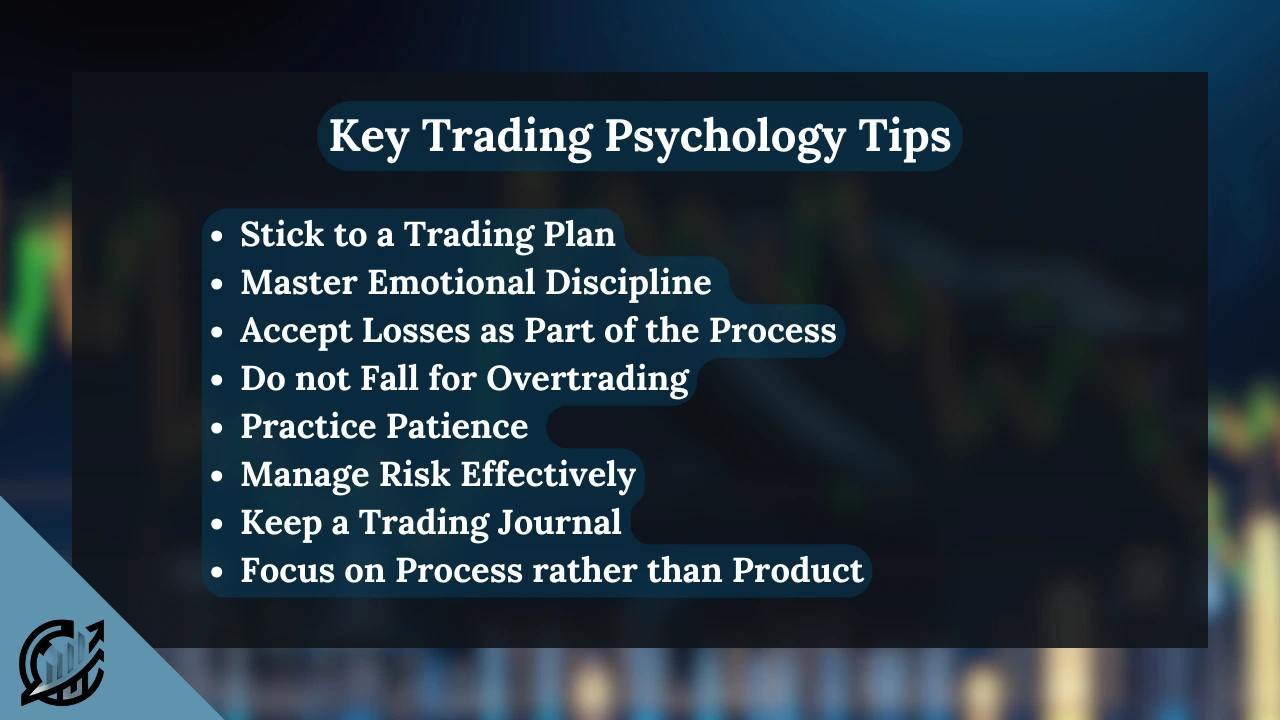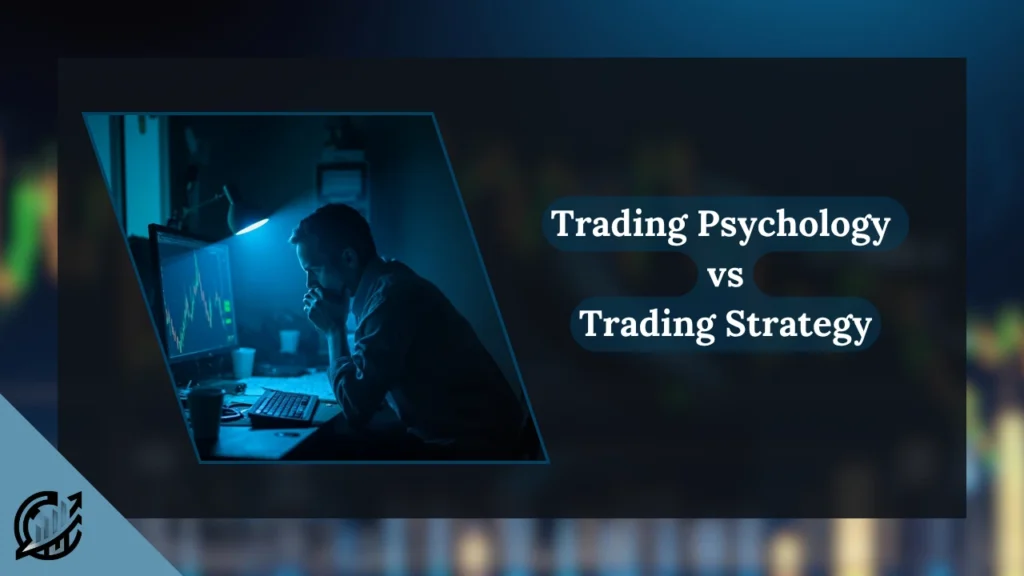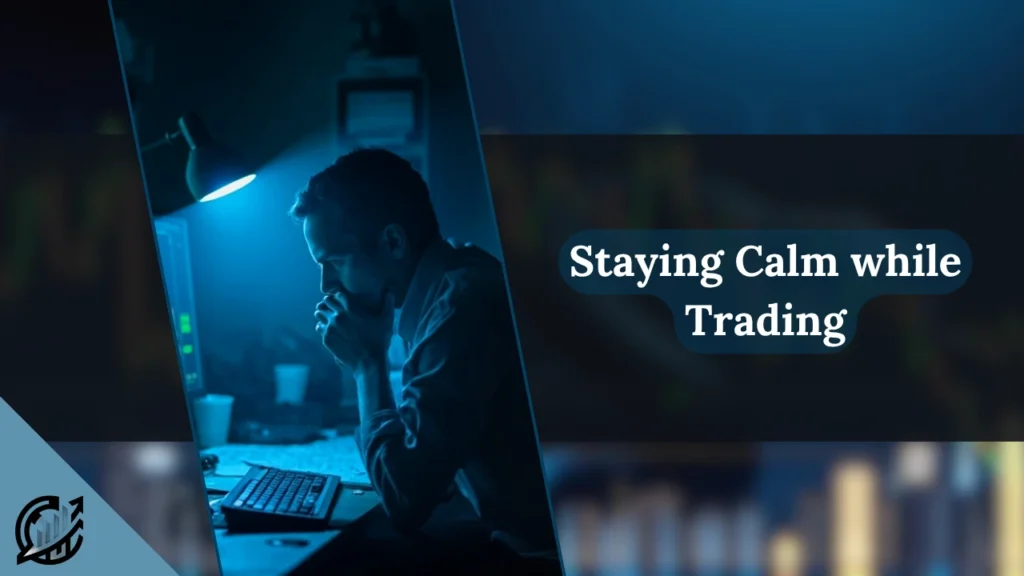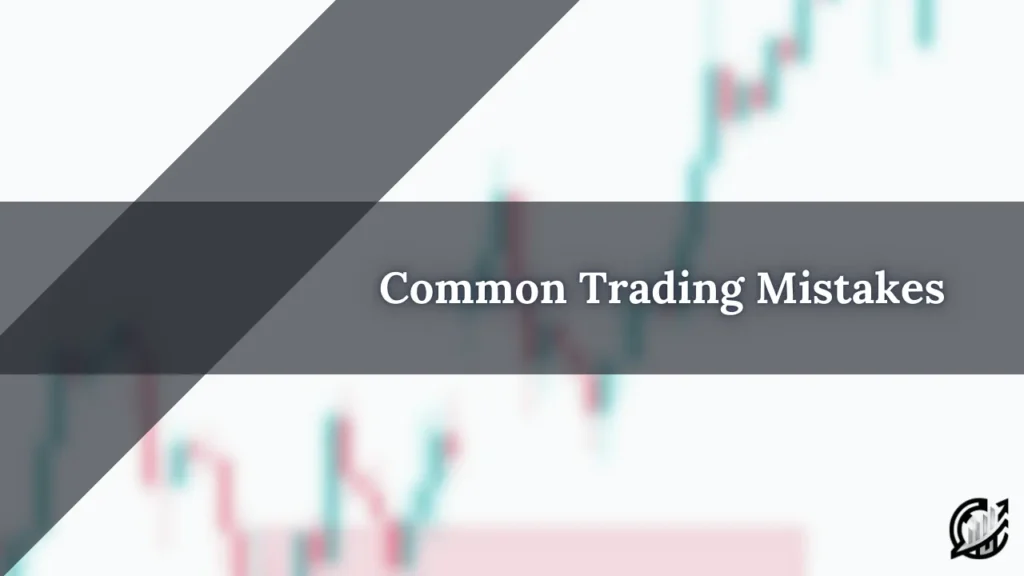
Table of Contents
Trading psychology is the backbone of successful trading. This aspect is often overlooked by beginners chasing quick profits. Trading psychology is concerned with the ability to control emotions, maintain discipline, and make rational decisions under pressure. This separates consistent traders from those who ignore trading psychology.
These trading psychology tips will help you master trading mindset and achieve success in the volatile world of trading. This article explores practical strategies to improve your mental game, avoid common mistakes and build a confident trading mindset.
Trading Psychology Tips
According to market professionals, trading is equally a mental game as it is a technical game. It is commonly believed that financial markets are driven by human emotions. These emotions like greed, fear, hope, and regret lead to costly mistakes. It is indispensable for new traders to understand trading psychology and apply trading psychology tips in their trading.
Understanding trading psychology tips helps stay calm in trading during market volatility. It prevents impulsive decisions like chasing losses or overtrading. Applying trading psychology tips foster discipline to stick to your trading plan. Lastly, it builds confidence to execute trades without second-guessing.
Research suggests that up to 80% of trading success depends on psychology than technical skills. Trading strategy and trading psychology must align with each other. If you are technical analysis expert, it is crucially important to master trading mindset with the help of trading psychology. It gives you an edge over traders who let emotions rule their trading.
Key Trading Psychology Tips
This section explores the actionable trading psychology tips designed to help new traders develop a strong mental framework. These trading psychology tips focus on emotional control, risk management, and building consistent habits.

Stick to a Trading Plan
In the realm of trading, trading plan is your roadmap to success. It outlines your entry and exit strategies, risk tolerance, and goals. Emotional decision making during high-pressure moments is a result of having no trading plan.
It is advised to write down your trading plan and review it daily. Write down a set of rules like “I’ll only risk 1% of my capital per trade.” Such practices reduce emotional interferences by giving you clear guidelines to follow, even when markets are chaotic.
Master Emotional Discipline
Mastering emotional discipline is a key factor in trading. Emotions like fear and greed can derail your trading. Most of the time, it is fear that stops you from entering a position in the market, while greed might push you to hold a position too long.
If possible, practice mindfulness techniques, such as deep breathing or meditation, to stay calm during trades. Such techniques help you stick to your strategy and avoid impulsive moves that lead to losses.
Accept Losses as Part of the Process
As a trader, you have to be prepared for losses. Losses are inevitable in trading. New traders often take losses personally. This action leads to frustration or revenge trading.
Professionals recommend to view losses as learning opportunities. Analyze what went wrong and adjust your strategy without emotional attachment. As a trader, accept losses because it reduces stress, and helps you focus on long-term profitability rather than short-term setbacks.
Do not Fall for Overtrading
Most of the time failure makes you insecure in trading. As a result of insecurity, traders place too many trades in order to get the money back. This practice is often driven by excitement or the need to recover losses. It is a common trap for beginners.
It is advised to set a daily or weekly trade limit based on your trading plan. This practice of limiting trades prevents burnout and protects your capital from unnecessary risks.
Practice Patience
Practicing patience is a cornerstone of trading success. It is advised to wait for the right setup. This improves our win rate.
Market professionals suggest using a checklist to confirm a trade meets your criteria before entering. This technique works because patience ensures taking trades with a high probability of success. It reduces emotional strain.
Manage Risk Effectively
It is a critical components of trading psychology tips. Without managing risk effectively, even the best strategies can lead to significant losses.
Professional advice to use a stop-loss orders and position sizing to limit losses. Never risk the capital that you cannot afford to lose on a single trade. Implementing proper risk management plan builds confidence. As a professional trader, you must limit your losses.
Keep a Trading Journal
A trading journal tracks your trades, emotions, and decisions. This helps you identify patterns and improve over time.
Keeping a trading journal includes recording details like entry/exit points, market conditions, and your emotional state during each trade. It provides insights into what works and what does not. It helps you refine your approach.
Focus on Process rather than Product
If you are looking for profits or losses, there is possibility that it will lead you towards negativity and cloud your judgement. Successful traders focus on the process rather than outcome.
It is advised to evaluate your performance based on how well you followed your plan, not just your profits. This keeps you focused on consistent execution.
Common Psychological Mistakes
As a trader, you have to follow the trading psychology tips and avoid mistakes that sabotage your success. The following are the mistakes that must be avoided:
- Fear of Missing Out is a well-known terminology that traders understand during their trading journey. FOMO drives traders to enter trades late and chase price spikes without a plan. In order to avoid FOMO, you must stick to your trading plan.
- Almost every trader faces the problem of revenge trading. After a loss, beginners try to win back their money by taking logicless trades. If you are facing the same problem, you should take break after a loss.
- If you are a beginner in trading and get a string of wins, this often leads to overconfidence. With this problem, traders often ignore risk management. Try to treat every trade as independent and stick to your risk parameters.
Final Thoughts
Acting on trading psychology tips often provides better results for new traders. Traders who develop their mindset, manage emotions, and avoid common mistakes can search for trades with confidence and consistency. As a beginner, take start by creating a solid trading plan, keep a trading journal and practice patience.
What are trading psychology tips?
Trading psychology tips are strategies to help traders manage emotions, maintain discipline, and make rational decisions to improve trading performance.
Why is trading psychology important for beginners?
Trading psychology is crucial because it helps beginners avoid emotional mistakes like overtrading or chasing losses, leading to better consistency.
How to control emotions while trading?
As a beginner trader, it is your job to practice mindfulness, stick to a trading plan, and use a trading journal to track and manage your emotional responses.
I’m Abdullah Shah, a content writer with three years of experience in crafting engaging and informative content. My background in market analysis complements my work, allowing me to create content that resonates with audiences. I’m also a seasoned practitioner in the forex and crypto markets, with a strong foundation and deep interest in finance. My passion for the financial world drives me to produce content that is both insightful and valuable for those interested in understanding market trends and financial strategies.





